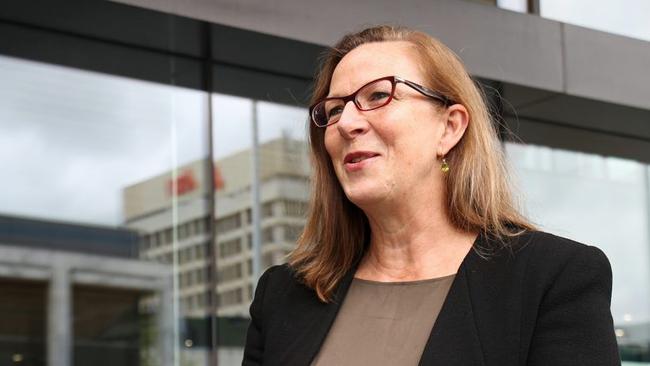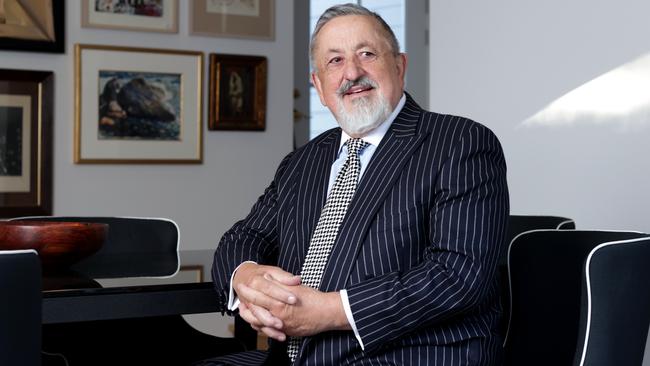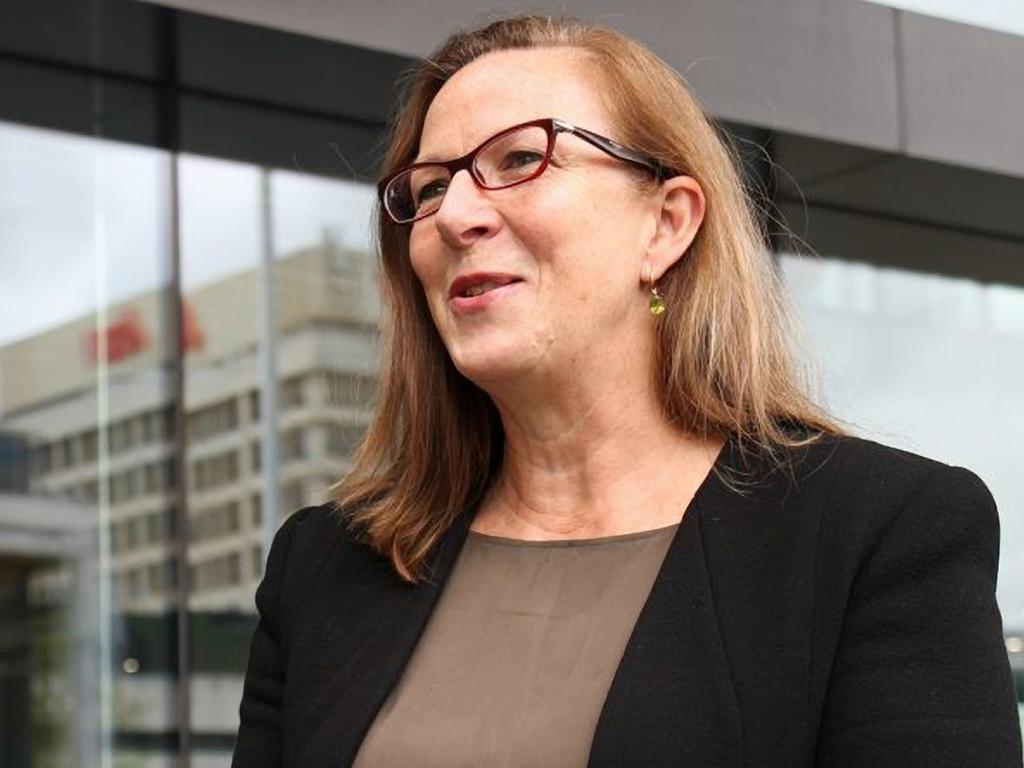Rules of cross-examination enter dangerous territory
ACT Chief Justice’s comments on ‘rape myths’ spark disquiet among the legal fraternity.

However, just because there is a problem doesn’t mean every suggested solution is a good one, and this one was not merely demonstrably wrong but dangerous. By chipping away at the presumption of innocence, it could substitute one form of unacceptable oppression for another.
Proving that the price of liberty is eternal vigilance, we need to revolt against the latest theory designed to replace the discredited “believe all women” dogma and create an official belief system to push up conviction rates: “rape myth” ideology.
The aim of this ideology is to enforce new norms in admitting and assessing evidence that might otherwise create reasonable doubt in the mind of a jury. It’s said to be a myth that every woman makes an allegation of rape soon after it happens, when there may be many reasons not to go to police or tell anyone else. It’s said to be a myth that a woman’s version of events remains the same after a rape, when in fact trauma can explain why a woman can’t get her story straight.
By characterising some scenarios as rape myths and rejecting or limiting questions aimed at exploring the veracity of these scenarios, a defendant’s ability to introduce exculpatory evidence is correspondingly reduced. The hope is that by treating some scenarios as rape myths, conviction rates will rise. The danger to justice is obvious.
In commenting on rape myths in one of two interviews with The Canberra Times, ACT Chief Justice Lucy McCallum set up the straw man: “Traditionally, we say if she didn’t complain it can’t be true. If she spoke to the perpetrator the next day, if she didn’t behave in a certain way, it can’t be true.”
While many ACT barristers are in revolt, some more publicly than others, McCallum’s decision to speak to the media has served an important purpose. It has put squarely in the public domain the dangers of “rape myths” being exploited to curtail how defence barristers defend an accused.
In a submission to the ACT Bar criminal law committee soon after McCallum’s comments, one senior ACT criminal barrister, who must go nameless for reasons explained later, wrote: “What victims’ advocates call ‘rape myths’ aren’t necessarily myths at all – rather they are generalisations, based on human experience, which may or may not be true in any given case. To call something a ‘myth’ denotes that it is untrue in all circumstances.”
The barrister went on to debunk the increasingly common claim that it’s a myth to suggest a woman would report a rape soon after it happened. “I would suggest that it is not necessarily a myth at all,” wrote the barrister.
“Depending on the circumstances of the case, a delay in making complaint may be highly probative, particularly when the alleged offending involves strangers or people who are barely acquainted or when the complainant was presented with multiple opportunities to make a complaint to a relevant person in a position of authority, but declined to do so …
“On the other hand, when it involves a child or family member, a delay in complaint may be more readily explicable.”
In his submission to the same committee, criminal barrister Steve Whybrow SC wrote: “Are defence counsel to be prevented from testing the timing and circumstances of a complaint because it relies on ‘rape myths’ about how a victim of sexual assault should behave … where such matters are significant for reasons wholly unconnected to some ‘rape myth’? For example, an allegation of non-consensual sex first made months after the alleged event but within hours or days of the complainant’s boyfriend, husband, parents etc becoming aware that the accused and the complainant may have engaged in sexual intercourse?

“Rarely in my experience is a cross-examiner relying on some generalised rape myth to create a reasonable doubt,” Whybrow wrote last week after McCallum gave two interviews to The Canberra Times, one praising the debunking of rape myths and the other describing a fair trial as an “intractable problem”.
McCallum hasn’t claimed she was misquoted. Nor has she elaborated further on her freewheeling comments. There is some explaining to do, say senior barristers.
As Whybrow wrote: “Generally, questions directed to such things as the time, place and manner of a complaint are not directed towards how a ‘genuine victim’ would act but towards testing the veracity or reliability of the evidence, for example by reference to inconsistencies with other statements or evidence or to demonstrate some inherent unlikeliness or possible motivation for a false complaint in the context of other evidence.”
Senior criminal barristers were equally troubled when McCallum claimed judges were not ensuring that defence barristers complied with the Evidence Act when cross-examining complainants. The Chief Justice said judges had a statutory duty to disallow questions that were “offensive, annoying, harassing, humiliating or repetitive”.
“So why aren’t we doing that? Because we’re all scared of not giving an accused a fair trial,” she told the newspaper. This is an extraordinary claim. Judges should fear not giving an accused a fair trial. That’s their job; it’s why we have a criminal justice system.
Equally concerning, the Chief Justice misquoted the Evidence Act. Section 41 makes it clear that barristers may not ask questions that are “unduly annoying, harassing, intimidating, offensive, oppressive, humiliating or repetitive”.
As Whybrow wrote: “The word ‘unduly’ has a lot of work to do in section 41 and if there is to be a debate about the proper application of this section, it should be properly informed debate.”
It goes without saying that a complainant will likely feel very annoyed and offended, even harassed and humiliated, when a defence barrister probes them about possible lies and misunderstandings.
McCallum’s public foray raises an important question for the criminal justice system: are we to have different cross-examination rules for a defendant in a sexual assault case compared with those, say, in a murder trial? This is where the newprevailing wisdom of rape myth may take us.
Every ACT barrister who has spoken with Inquirer this week about McCallum’s rape myth comments echoed what one said: “McCallum can’t change the law, but she can use ‘unduly’ in the Evidence Act in her own fashion to shut down cross-examination. And if the Chief Justice is doing it, then it seemsthe message that Lucy is trying to get out is that under her leadership this is what she wants other judges to do,” as one said.
In his submission responding to McCallum’s comments, Whybrow wrote: “The new ‘prevailing wisdom’ that we are supposed to just ignore the significance of a complainant being fundamentally unable to get their story straight is impossible to reconcile with key propositions and assumptions underpinning the Uniform Evidence Acts.”

Whybrow and senior defence barrister Jack Pappas have been drafting a letter in response to McCallum’s public comments. The letter, currently 3000 words, has gone through many iterations and is not yet published.
Pappas told Inquirer this week: “Almost to a man and a woman, everyone I’ve spoken to at the ACT Bar about the letter has endorsed its sentiments, but almost to a man and a woman they’ve shied away from putting their name to it.”
When asked why barristers should push back if they are concerned by McCallum’s controversial comments, Pappas said: “What’s the alternative? That you tug the forelock and say, I’m going to do half a job for this accused because I’m fearful that I will anger the Chief Justice, or I’ll be shut down by the Chief Justice? That’s not the history of the independent Bar. I signed on to be fearless in my defence of people. If I find it necessary ultimately to draw the line with what she’s doing and, and to be critical of her, even though she’s the Chief Justice, I won’t hesitate in doing it.”
Whybrow told the criminal law committee he is “concerned that there is presently a slow creep occurring where to even publicly suggest such things as a presumption of innocence for all persons charged with criminal offences but particularly sexual offences is to risk criticism, abuse and ostracism”.
From her extraordinary position of power, ACT barristers who have spoken with Inquirer believe the Chief Justice has putbarristersin an impossible position. If they speak up, they stand exposed as critics of the ACT’s most senior judge. What does that mean for their career and what does it mean for their clients when they appear before her? If they stay silent, the exploitation of rape myths to shut down cross-examination will continue unabated.
The ACT is a small place. McCallum is also the boss of appeal court judges who hear any appeal from a decision she makes. So, the safest path is for barristers to keep their heads down and not challenge the rape myth ideology, even though it risks sending innocent people to jail.
Woe betide a sexual assault defendant in the ACT. Some will say: This is only as it should be, why should we be any more solicitous of the rights of a defendant than we are of the fears and concerns of a complainant? Why should complainants be subjected to annoying, offensive, harassing or humiliating questioning?
This fundamentally misunderstands the criminal justice system. There is no equivalence, no equality of treatment here. That’s because there is no equivalence of consequence.
As one senior defence barrister put it compellingly: “Going to prison for a rape one never committed because the evidence could not be properly tested is also offensive, harassing and humiliating.”







The fashionable catchcry “believe all women” was meant to be the panacea for the problem of low conviction rates for sexual assault.